Contributing Author & Editorial Review
This article was crafted and reviewed by experienced professionals to ensure accuracy and practical insight.


DSCR Rental Loan Highlights
- Qualification based mainly on property cash flow (DSCR).
- No personal income docs required for many programs.
- Financing for 1–8 unit rentals, portfolios, and many STR/Airbnb deals.
- Up to 80% LTV on purchases and 75% LTV on cash-out (program-dependent).
- 30-year fixed and interest-only options available.
Small-Scale Acquisition Strategies for Local Investors in New Orleans – 2025 Guide
In 2025, small and local investors continue to gain traction in New Orleans’ dynamic residential real estate market. With median home prices sitting at approximately $273,000 and average gross rent yields upwards of 7.2%, New Orleans offers unique opportunities for investors utilizing small-scale acquisition strategies. This guide dives into creative financing techniques, effective deal finding strategies including off-market property sourcing, and local resources tailored for individual investors, first-time buyers, and small landlords. We’ll explore real-world success stories, updated New Orleans regulations, and actionable advice for gaining a competitive edge as a small investor in this vibrant city.
- Small-Scale Acquisition Strategies for Local Investors in New Orleans – 2025 Guide
- Understanding Small-Scale Acquisition Strategies in the New Orleans Residential Market
- New Orleans Market Analysis & Acquisition Opportunities for 2025
- Creative Small-Scale Acquisition Strategies: Step-by-Step for New Orleans Investors
- New Orleans Investor Success Stories: Real Case Studies
- Financing Strategies and Local Lender Recommendations
- Legal Considerations and 2025 Local Regulations
- Common Challenges & Solutions for New Orleans Small Investors
- Building Your Local Network & Resources
- Step-by-Step Action Plan for Getting Started in New Orleans
- Frequently Asked Questions (FAQ)
- Conclusion: Next Steps for Small Investors in New Orleans
Understanding Small-Scale Acquisition Strategies in the New Orleans Residential Market
New Orleans’ eclectic mix of historic homes, shotguns, doubles, and renovated condos present varied points of entry for local investors. As housing demand increases in neighborhoods like Mid-City, Gentilly, and Algiers, small investors are increasingly using creative approaches such as owner-financing and BRRRR. In 2025, competition from larger institutional investors remains—but local buyers leverage New Orleans’ relationship-driven market and their street-level knowledge for unique acquisition opportunities.
- Median home sales (2025): $273,000
- Average rent for 3-bedroom homes: $1,850/month
- Typical rent yield: 7.2% (higher in off-market/ distressed deals)
- Market focus: Tremé, Central City, Algiers, Gentilly, and Bywater
Small investors in New Orleans benefit from targeting properties below $300,000, with strong BRRRR or house hack potential and steadily rising rents. The city’s diverse housing stock supports both single-family and duplex/multifamily strategies, especially in up-and-coming or revitalizing areas.
Need capital? GHC Funding offers flexible funding solutions to support your business growth or real estate projects. Discover fast, reliable financing options today!
⚡ Key Flexible Funding Options:
GHC Funding everages financing types that prioritize asset value and cash flow over lengthy financial history checks:
DSCR Rental Loan
- No tax returns required
- Qualify using rental income (DSCR-based)
- Fast closings ~3–4 weeks
SBA 7(a) Loan
- Lower down payments vs banks
- Long amortization improves cash flow
- Good if your business occupies 51%+
Bridge Loan
- Close quickly — move on opportunities
- Flexible underwriting
- Great for value-add or transitional assets
SBA 504 Loan
- Low fixed rates through CDC portion
- Great for construction, expansion, fixed assets
- Often lower down payment than bank loans
🌐 Learn More
For details on GHC Funding's specific products and to start an application, please visit our homepage:
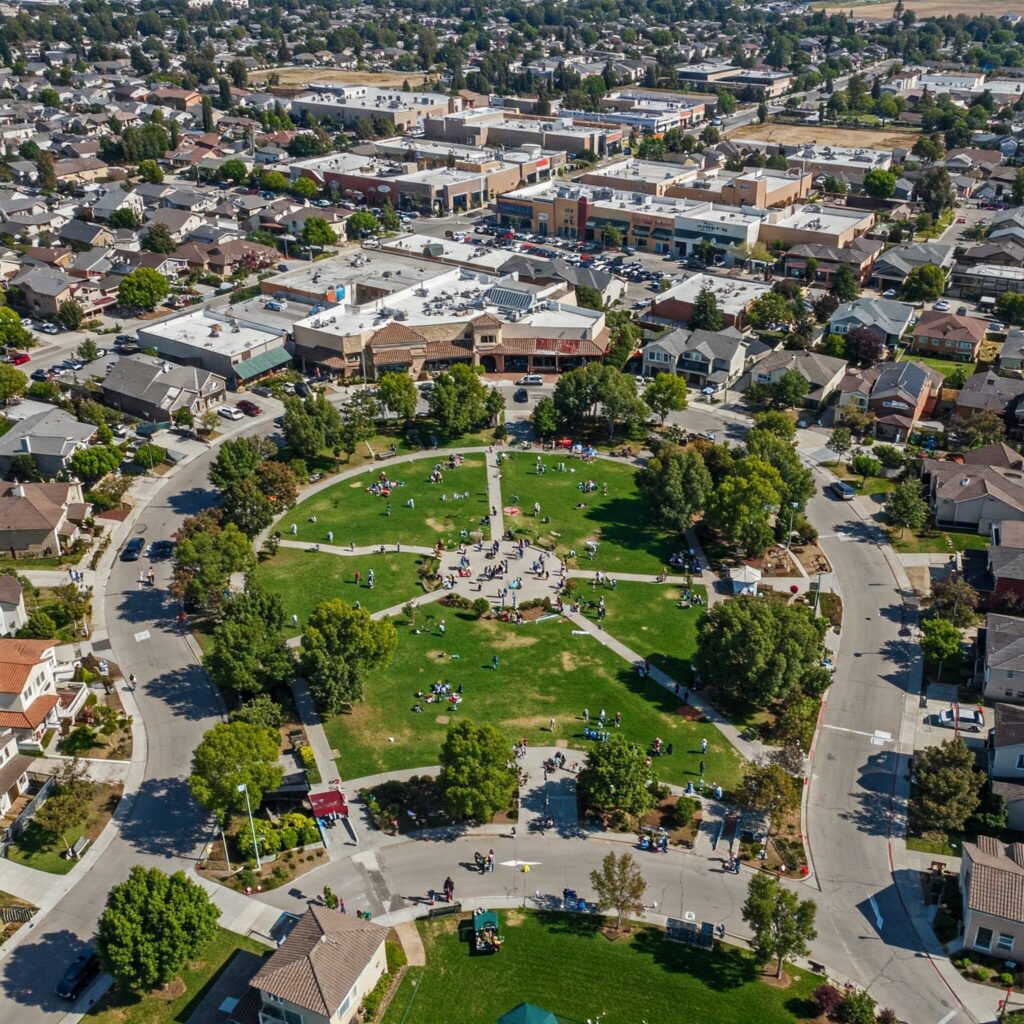
New Orleans Market Analysis & Acquisition Opportunities for 2025
New Orleans’ real estate landscape in 2025 is defined by resilient population growth, post-pandemic job expansion in hospitality and healthcare, and ongoing neighborhood revitalization. The Central Business District and Bywater continue to see new investment, while Gentilly attracts first-time buyers. Investors targeting properties with minor cosmetic updates in transitioning neighborhoods—like Pontchartrain Park or Hollygrove—see higher ROI due to lower acquisition costs and rising rents.
Neighborhood Spotlight: Bywater & Marigny
- Median property value: $312,000
- Average rent (2BR): $1,670/month
- Deal finding tip: Look for historic homes in need of moderate rehab, owner-occupied doubles, or off-market estate sales listed in local Facebook groups and REI meetups
Small investors should monitor city council zoning updates—policies favoring ADU (accessory dwelling unit) construction and relaxed STR (short-term rental) regulations in certain districts increase acquisition upside.
Creative Small-Scale Acquisition Strategies: Step-by-Step for New Orleans Investors
1. Creative Financing: Owner Financing & Lease Options
In New Orleans, off-market deals with owner financing or lease-option terms are frequently found through direct mail, courthouse records, or neighborhood networking. These approaches allow local investors to lock in properties without traditional bank loans, often with minimal upfront costs.
- Owner Financing: New Orleans sellers, especially in family estate situations, often offer down payments as low as 10%, interest rates of 6-8%, and three- to five-year balloon terms.
- Lease Options: In neighborhoods like Algiers and Gentilly, investors are able to option a property with a 12-24 month rent-to-own agreement, which is popular among sellers who want cash flow but aren’t ready to sell outright.
2. Off-Market Property Sourcing: Direct Mail & Local Networks
With competition fierce on-market, local investors in New Orleans utilize direct mail campaigns targeting absentee owners or properties with code violations. Handwritten notes, door knocking, and participation in local REI meetups (like New Orleans Real Estate Investors Association) yield quality off-market leads.
- Top Zip Codes: 70119 (Mid-City), 70122 (Gentilly), 70117 (Bywater)
- Expected response rate: 2–5% for well-crafted direct mail pieces
3. Wholesaling & Assignment Contracts
For those wanting to get started with little capital, wholesaling is viable in New Orleans. Recent data shows 150+ recorded assignment transactions in 2024, many under $200,000. Focus on properties with tired landlords or out-of-state heirs—tap into local title companies familiar with assignment contracts (like Crescent Title).
4. BRRRR Method Implementation
The Buy, Rehab, Rent, Refinance, Repeat (BRRRR) process works well in neighborhoods with stable rental demand and properties below 0,000. Local lenders such as Fidelity Bank offer rehab-friendly loans, and expect an ARV appraisal reflecting the revitalizing market.
- Typical BRRRR numbers: Acquisition $180,000; Rehab $40,000; Refinance at $260,000 ARV; $65,000 cash-out potential; new rent $1,600/month.
5. Local Networking & Investment Clubs
In New Orleans, networking is essential. Attend events with NOLA REIA and New Orleans Investor Meetup. Local Facebook buy/sell/invest groups frequently feature pre-MLS or word-of-mouth deals.
New Orleans Investor Success Stories: Real Case Studies
- Shawna B. acquired a Mid-City double via owner financing at $230,000 with only 12% down, renovating both units for a total $35,000 and now earning $2,200/month rent. This provided Shawna a 9% cash-on-cash return and positioned her for a 2025 refinance.
- Terrence L. used a direct mail campaign in Gentilly to find a distressed property at $167,000 (15% below market), assigned the contract for a $12,000 wholesaling fee to a local landlord, and reinvested profits into his next off-market marketing campaign.
Financing Strategies and Local Lender Recommendations
- Traditional Lenders: Hancock Whitney; offering investor loans on doubles and four-plexes with as little as 15% down for qualified buyers.
- Credit Unions: New Orleans Firemen’s Federal Credit Union provides portfolio loans ideal for self-employed or non-traditional borrowers.
- Hard Money & Rehab Loans: Crescent City Lending and Southern Mortgage Capital offer fast close and rehab funding with competitive rates (starting from 9.99%, 12-month terms).
In 2025, New Orleans investors see favorable terms via local lenders prioritizing relationships—submit business plans for BRRRR and wholesale deals to improve approval odds.
Legal Considerations and 2025 Local Regulations
- Landlord-Tenant Law: New Orleans mandates 5-day notice to pay or quit before filing for eviction and enforces new rules on rental registrations (mandatory annual inspections since 2023).
- Short-Term Rentals: City Council is reviewing 2025 STR caps in Bywater and Marigny—investors must review latest zoning maps at NOLA.gov.
- Code Enforcement: Many off-market opportunities surface due to code liens; understand redemption and title clearing process before closing.
Common Challenges & Solutions for New Orleans Small Investors
- Property Condition: Many deals involve deferred maintenance; partner with local contractors for accurate rehab bids.
- Competition: Out-of-town investors often overpay. Use local insight and relationship building for an advantage.
- Financing: Self-employed or low-doc buyers face stricter bank scrutiny; credit unions and seller financing bridge the gap.
- Legal Hurdles: Post-2024 changes require rental registration and annual inspections. Budget time and cost for compliance.
- Market Knowledge: Rapid shifts in neighborhood dynamics—stay informed via neighborhood associations and REI groups.
Building Your Local Network & Resources
- New Orleans REIA – Largest local investor group, monthly meetings and online forums
- Historic District Landmarks Commission (HDLC) – Key for compliance in renovations of historic properties
- Title/Closing Attorneys: Crescent Title, Audubon Title, local specialists in assignment and creative deals
- Local Real Estate Agents: Partner with agents experienced in off-market deals in desired zip codes
- Contractor Networks: NOLA-based builders familiar with flood-prone structures and historical rehab
Success in New Orleans depends on deep local connections and continual learning—join meetups, walk neighborhoods, and invest in relationships with reputable service providers.
Step-by-Step Action Plan for Getting Started in New Orleans
- Define your strategy: Choose between buy-and-hold, BRRRR, or wholesaling based on your capital and goals.
- Build your network: Attend NOLA REI events, join online groups, and identify local contractors and agents.
- Target neighborhoods: Focus on Bywater, Algiers, Mid-City, and Gentilly for high yield and value-add options.
- Market for deals: Launch a direct mail campaign or work with wholesalers; drive the neighborhood and look for distressed properties.
- Secure financing: Get pre-approved with a local credit union or speak with a hard money lender for BRRRR projects.
- Analyze deals: Use conservative ARV estimates, comp analysis, and local rent data (Zumper, Rentometer, NOLABA).
- Make offers & negotiate: Utilize assignment contracts, creative financing, or lease-options in your bids.
- Close & execute: Leverage local title attorneys and contractors for rapid turn-around and compliance.
Frequently Asked Questions (FAQ)
- 1. What are the best neighborhoods in New Orleans for small investors in 2025?
- Bywater, Mid-City, Algiers, and Gentilly offer a mix of affordable entry points, strong rental yields, and value-add potential. Look for properties under $300,000 with rental demand and upside from revitalization.
- 2. What creative financing options are available for small-scale deals?
- Owner financing, lease-options, and partnerships with local investors are common. Local credit unions and hard money lenders (such as Crescent City Lending) also provide short-term solutions.
- 3. How can I find off-market properties in New Orleans?
- Direct mail to absentee owners, driving for dollars, connecting with wholesalers, and attending local REI events are highly effective in the New Orleans market.
- 4. What are typical cap rates and ROI for small investors in New Orleans?
- Cap rates range from 6.5% to 8.5% for small multi-family properties. Cosmetic rehab projects acquired below market can achieve 10–14% cash-on-cash returns in prime neighborhoods.
- 5. What regulatory risks should I consider?
- Rental registration, STR zoning, and historic district renovation requirements are key. Stay updated on city council proposals and use local resources for compliance.
- 6. Are there local programs for first-time or small investors?
- Yes. Look into New Orleans’ Soft Second Mortgage Program (for owner-occupants), as well as local credit unions that offer portfolio loans or flexible terms for new investors.
Get a Free Rate Today
Compare our top-rated commercial and investment property loan programs below.
- No income verification
- 30-year fixed | Interest-only available
- Great for rental properties + STR
- Fast approvals
- Working capital + business acquisition
- Up to $5M
- Low down payment
- Long-term financing
- Owner-occupied CRE
- Low fixed rates | 25-year terms
- Great for business expansion
- Refinance available
- Best for stabilized properties
- Competitive rates
- 12–25 year terms
- Lower fees than private lenders
Compare Loan Types
Find the Right Financing for Your Real Estate or Business Project
| Loan Type | Best For | Rates | Terms | Highlights | Apply |
|---|---|---|---|---|---|
| DSCR Loan | Rental properties (LTR & STR) | 5.99%+ | 30-year fixed, IO options | No income docs, fast approvals, great for investors | Check My Rate |
| Construction Loan | Ground-up, fix & build, major renovations | 8%–12% depending on scope | 12–24 months interest-only | Flexible draws, great for builders & developers | Get a Quote |
| SBA Loan | Business acquisition, working capital, CRE | Prime + spread | 10–25 years | Lowest down payments, long terms, best for business growth | See My Options |

Leave Your Job and Start Your Own Business Now
Discover how to leave your corporate job and start your business with practical tips and insights. Explore funding options today!
Read more →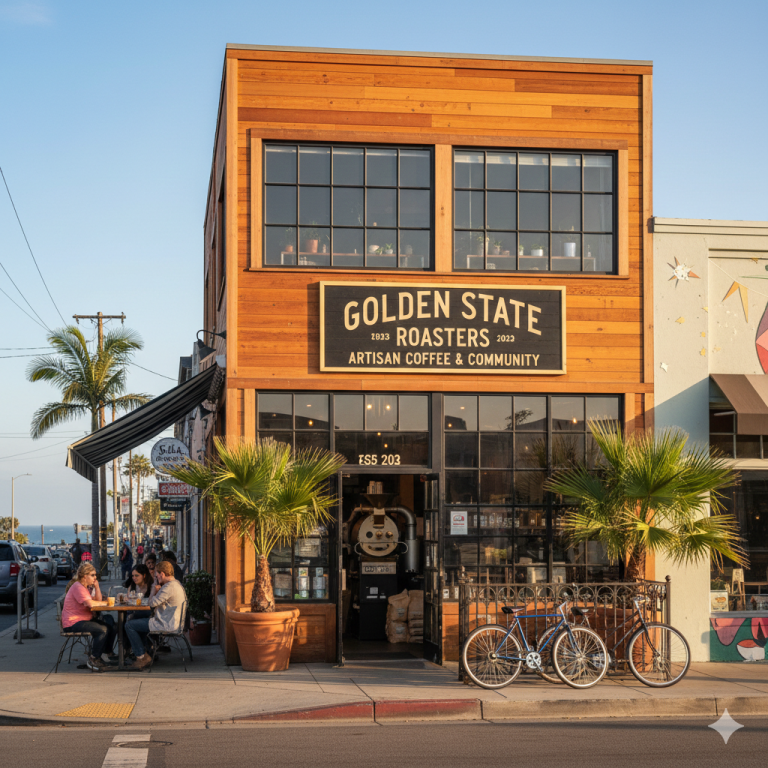
How Much Money Do You Need to Start a Business?
Discover how much capital you really need to start a business and practical tips to fund your entrepreneurial journey.
Read more →
The Funding Options for New Entrepreneurs Now
Discover diverse funding options for new entrepreneurs to escape corporate life and launch your business successfully.
Read more →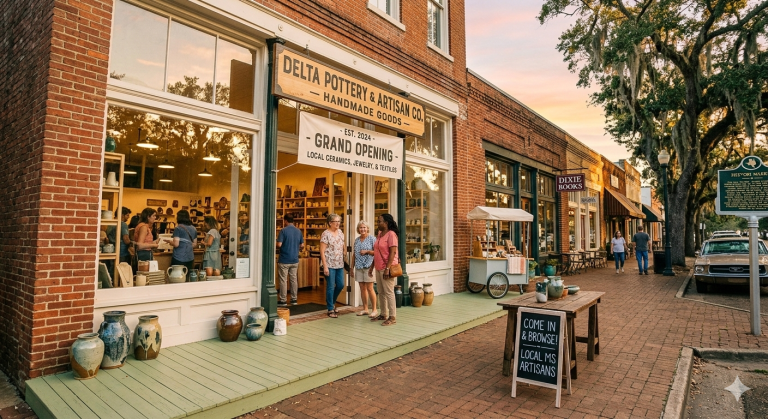
The SBA 7(a) vs 504 Loan in Mississippi Now
GHC Funding Website Published: March 3, 2026 Categories: blog Reading Time: 3 minutes read Understanding SBA 7(a) vs 504 Loans: What Mississippi…
Read more →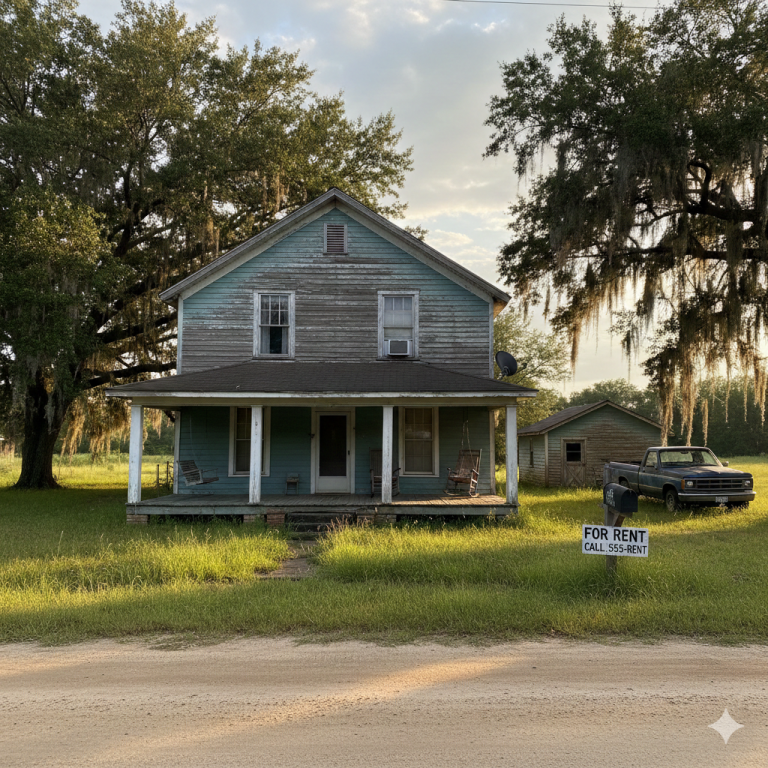
Get a DSCR Loan Calculator in Mississippi Now
GHC Funding Website Published: March 3, 2026 Categories: blog Reading Time: 3 minutes read Understanding DSCR Loan Calculators with Taxes and Insurance…
Read more →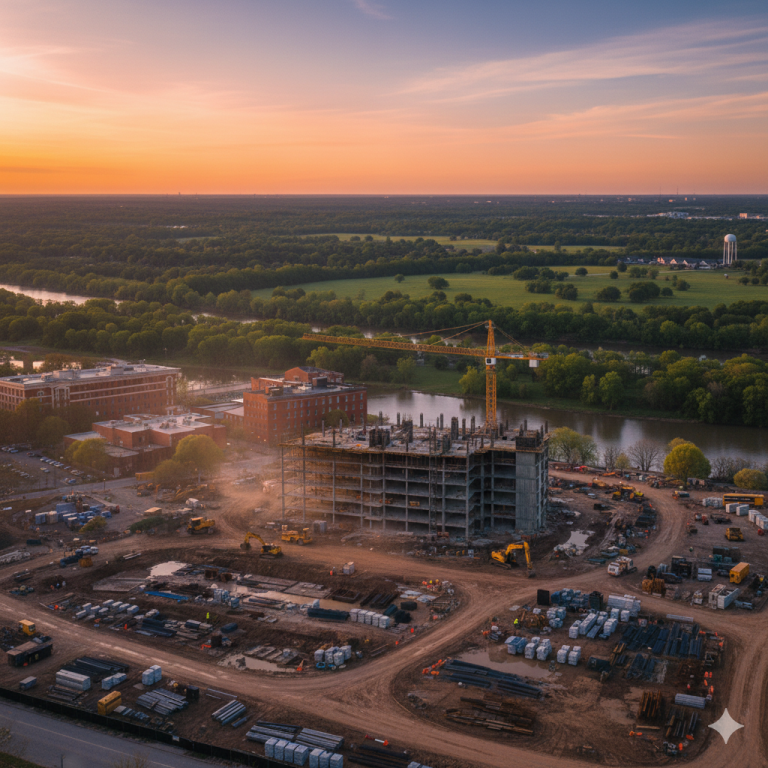
Get a Construction Loan in Mississippi Now
GHC Funding Website Published: March 3, 2026 Categories: blog Reading Time: 3 minutes read How to Get a Construction to Permanent Loan…
Read more →Conclusion: Next Steps for Small Investors in New Orleans
New Orleans’ 2025 residential market empowers local and small investors with creative deal finding, robust networking, and flexible financing options. By focusing on off-market acquisition strategies, leveraging neighborhood knowledge, and utilizing local financing programs, you can build a profitable small real estate portfolio—even amid increased competition. Take action by defining your investment strategy, building meaningful city-based relationships, and consistently marketing for deals. Success comes to those who hustle—start walking neighborhoods, sending mailers, and making offers to become New Orleans’ next thriving small-scale investor!
Get a No Obligation Quote Today.
Use these trusted resources to grow and manage your small business—then connect with GHC Funding
to explore financing options tailored to your needs.
GHC Funding helps entrepreneurs secure working capital, equipment financing, real estate loans,
and more—start your funding conversation today.
Helpful Small Business Resources

